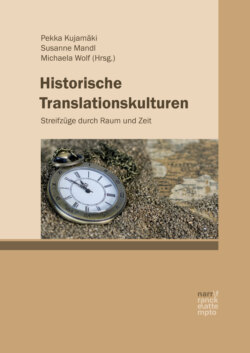Читать книгу Historische Translationskulturen - Группа авторов - Страница 34
2.1.5 Breton
ОглавлениеIn the nineteenth century, Breton was still widely spoken in Lower Brittany, particularly in the west (Timm 2015: 715). However, reliable figures for the number of speakers are difficult to find. Foy (2002: 29) refers to census statistics from 1886 which indicate that 51 % (1,320,000) of the population of Lower Brittany were monoglot Breton. Referring to Broudic (1999), she proposes that that the corresponding figures for 1905 show a decline in the number of speakers by 32 %. The education system played a major role in this decrease; 1882 saw the Jules Ferry school laws introduce mandatory French-medium education which made no mention of any other language. School children were often punished if they were caught speaking Breton (Prémel 1995: 53), which Prémel sees as the main reason for the stark decline in the language in the twentieth century (ibid.: 54). While Favereau (2007: 130) observes a Breton Revival, particularly in terms of literature, at the turn of the century, it is not generally considered to have played a major role in the Celtic Revival as Breton had flourished in Lower Brittany until that time and, unlike Irish, Scottish Gaelic, Manx and Welsh, was only starting to experience a period of pressure from another language.
